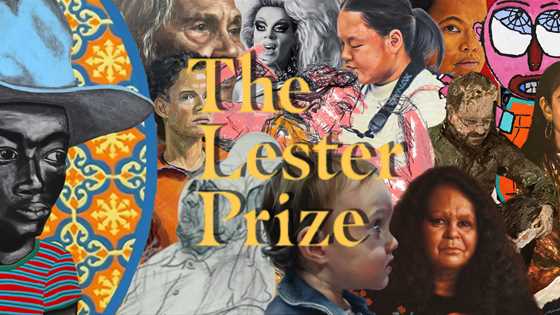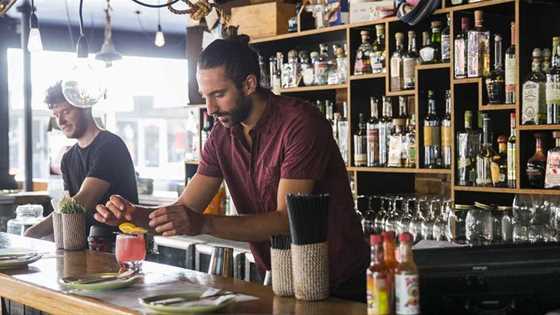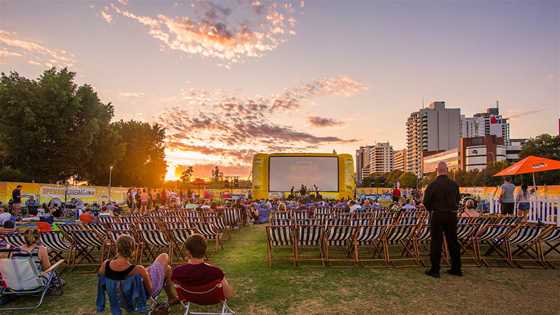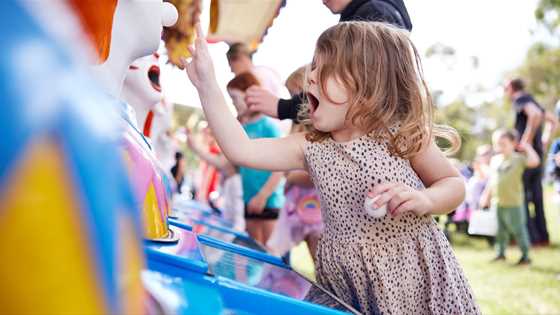It seems non-profits are starting to forge enduring bonds, and with philanthropy getting more mainstream, there’s more than enough pie to go around.
When we interviewed Ros Worthington she lamented the reluctance of charities to unite, thanks to competition for funding. "They don't want to give up a piece of the pie," she said. However, it seems non-profits are starting to forge enduring bonds. Saving Time, a new initiative from Breast Cancer Foundation WA and the McGrath Foundation, is a prime example that, says Ros, is set to knock Movember off the top spot of the WA social calendar. DropIN, a new WA online sharing platform is also making it a cinch for charities to work together. And with philanthropy getting more mainstream (just check out the Global Funding Network, which launched in Perth this year), there's more than enough pie to go around.

Sonia Neale
SANE Fellowship
Having battled borderline personality disorder, a WA woman aims to de-stigmatise the problem and bring world-class treatment facilities to Perth, using a fellowship from mental health charity SANE.
When Sonia Neale was diagnosed with Borderline Personality Disorder, her psychiatrist didn't tell her. Although she suspected the way she felt – excessively angry, pathologically jealous, disconnected – marked the illness, she didn't receive formal confirmation until she discovered a letter to her GP five years later.
"It's quite common for mental health professionals not to diagnose BPD because it's a very stigmatised diagnosis," Sonia says. She wants to change that. And winning SANE's inaugural Hocking Fellowship for mental illness advancement is just the beginning.
Sonia believes there is a huge gap in the market for dedicated BPD services, with nothing in the way of non-government services. "There is dialectical behavior therapy but it has to be delivered by a clinical psychologist, so there's limited numbers. There's a 12-month waiting list and it takes 12 months to complete. There needs to be something that is cheaper, encompasses more people and also is long-term."
She plans to observe BPD programs in the UK and US, and implement the best bits in WA... run by people who have recovered from BPD. "Peer work is crucial because the one person who understands someone with BPD is someone who has it or has a recovered experience themselves."

Words by Kim Cousins.
Daniel.Ink
A young man with cerebral palsy has launched a fashion line to raise awareness about the condition... and is attracting attention from the local community and celebrities alike.
Being born with cerebral palsy may make getting around a bit tricky, but it hasn't stopped Daniel Pavlovic from launching a career in fashion. Support from family and friends has helped the 21-year-old create a line of T-shirts (worn by everyone from musician Neil Finn to The Voice's Joel Madden), while also getting the conversation on cerebral palsy started in the wider community.
Cerebral palsy affects the muscles in Daniel's hands and legs, making it difficult for him to move freely and do things most of us rarely think about, such as swallowing, sitting or speaking. There is no cure for cerebral palsy – corrective muscle surgery has helped – and health management takes up a big part of Daniel's day, with physiotherapy, visits to a psychologist and doctors, massage and regular exercise.
His Daniel.Ink t-shirt business involves the whole Pavlovic family – sister Nathalie helps out with the administration work, his grandmother hand-sews tags onto the T-shirts, and dad Ivan (pictured with Daniel, above) helps out with general business management. Daniel hand-draws all the designs (he studies visual art one day a week at Polytechnic West).
The Pavlovics wanted to "give something back", so 10 per cent of Daniel.Ink's profits go to the Centre for Cerebral Palsy in Western Australia. "It's not about just dollars and cents," says Ivan. "This is Dan's job, it gives him a future."
Hazel Grunwaldt, of the Centre for Cerebral Palsy, provides support to Daniel and other Western Australians with cerebral palsy.
"Every 15 hours a child is born in Australia with cerebral palsy," says Hazel. "There are 3500 people in WA with cerebral palsy and 33,000 Australia-wide."
"Daniel is really inspirational and the business is great personal development for him. I'm just so proud of him," says Hazel.
For details and ordering, visit danielink.com.au or fb.com/danielinktshirts.

Eye on Harvard
David Mackey from the Lion's Eye Institute visited Harvard Business School to learn non-profit management strategies, thanks to a Harvard Club of Australia fellowship.
"Leadership and learning are indispensable to each other," John F. Kennedy was purported to have said. He was right. That's why the Harvard Club of Australia flies two non-profit leaders to the Harvard Business School in Boston to learn new strategies and methods of engagement. David Mackey, managing director of the WA-based Lion's Eye Institute, was one of the lucky pair to receive this year's scholarship, which aims to enhance leadership and performance in the non-profits, align leaders with their missions, and positively influence the community.
A pioneer in ophthalmology, with more than 20 years in practice, David described the trip as, "one of the best experiences I have had in my professional development".
In addition to meeting fellow leaders from across the globe and attending seminars, David was inspired by the structure of a US-based eye centre. "The Harvard Club scholarship also allows awardees to visit similar organisations in the US. I spent several days in Salt Lake City, Utah, visiting the Moran Eye Center, which is the most similar organisation in size and structure to the LEI," he says. "It provided many ideas for renovating our clinics in Western Australia.
"I returned with notes, books, ideas, new friends, but most importantly a renewed passion for leading strategy to enable the LEI to fulfil its mission to achieve excellence in scientific research and clinical practice to prevent blindness."

DropIN
A new digital platform seeks to unite the community sector in WA, providing community service workers easy ways to share information and network.
"Working together seems simple," says Kylie Hansen, who manages WA community platform DropIN, "but in practice it can be difficult." She's talking about the non-profit sector's reluctance to converge (usually due to a competitive funding environment) despite the manifold benefits of doing so.
Launched by the Western Australian Council of Social Service, DropIN aims to make working together easier, as well as providing the opportunity to collaborate with government and corporate partners.
The online platform for community service workers is a mishmash of your
fave professional networking sites: like LinkedIn, you can create a profile and communicate with networks you're involved with; like Dropbox, you can store documents that relate to your networks and their meetings; and like Google Groups, you can communicate with others about your work.
"There is little question increased and enhanced collaboration between all sectors leads to more, higher-quality outcomes for individuals and communities," says Kylie. "Innovative service delivery models that are gaining traction worldwide are all centred on how organisations work better with one another, and become less organisation-centred and more outcomes-focused."
Visit dropin.org.au for more information.
sepia.jpg)
Hope Warriors
Two mothers have launched a foundation with Telethon to fund research into extremely rare childhood diseases.
Instead of kicking the footy like his pals, nine-year-old Perth boy Conor Brown's extracurricular activities involve weekly injections and multiple medical appointments. And, while his friends gorge on cake or fish and chips, he's on a strict limit of 10 grams of fat a day – and his life depends on it.
Conor has lymphangiectasia – his lymph system did not form properly, resulting in a build-up of excess fluid that seeps into the tissues. It's rare. So rare he is the only person diagnosed with it in Australia. And there's no cure.
When he received the diagnosis at just four months old, his mother, Samantha Brown, was in shock. "When the doctors came in and told us, my husband and I stared at each other, and said, 'We don't even know what that is'. The information isn't out there, you've got no one who understands."
But when Samantha met Aydee Edwards at a Telethon event, she found someone who recognised her struggles all too well. Aydee's eight-year-old daughter, Sophie, has juvenile arthritis and avascular necrosis – her bones are slowly crumbling. The little girl, who is terrified of needles, needs fortnightly injections, three-monthly infusions, and six-monthly MRI scans. Some days, she struggles to walk and requires a custom-made wheelchair. Again, there is currently no cure.
This year, Samantha and Aydee founded Hope Warriors to fund research into extremely rare childhood diseases. Working with Telethon, they hope to set up a rare disease research facility in WA, but perhaps more importantly they're focused on building connections for those who need them.
"It can be a tough road," says Samantha. "Aydee and I are keen on developing strong support networks so other children and parents don't feel quite so isolated."
See hopewarriors.com.au for details.
The Funding Network
A global network that offers an innovative crowd-funding model is raising money across a number of WA social endeavours.
You don't have to be Twiggy Forrest to be a philanthropist. In fact, philanthropy is more accessible than ever thanks to an innovative new non-profit that's using crowd funding – with individual donations of $100 and up – to launch the projects of social entrepreneurs. The Funding Network has been hosting live crowd-funding events across the globe since it was started by a London art dealer in 2002, and in April this year it launched in Perth, giving financial support to a diverse range of WA social projects. More than $10,000 apiece has been raised for The Imagination Games (a motivational project that seeks to engage students in imaginative play); Mobile GP (which provides healthcare for homeless and marginalised people); Zanders Community Education (providing life skills coaching for Aboriginal Cottesloe residents are lucky, with their breathtaking beaches and pine-lined streets. Fortunately, they know it and are all about sharing the love around.
Did You Know?
A QUT analysis of Australian Taxation Office stats revealed Cott was the most giving area in Australia, proffering a total of $43.7million in claimed gifts and the highest average gift of $19,587.77. Nice!students); and South East Asia Investigations Into Social and Humanitarian Activities, which strives to protect human rights in South East Asia. Here at Scoop, we're all about making philanthropy mainstream, so we encourage everyone to get on board.








